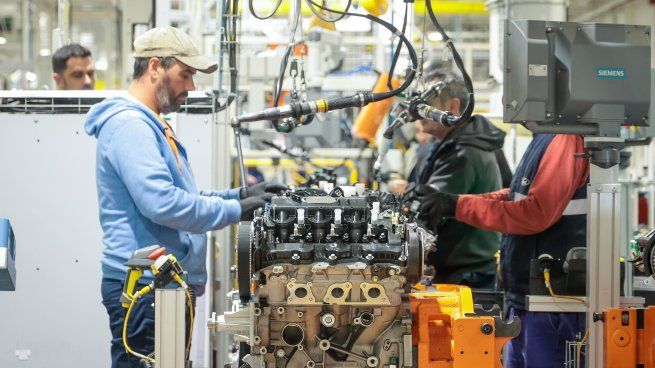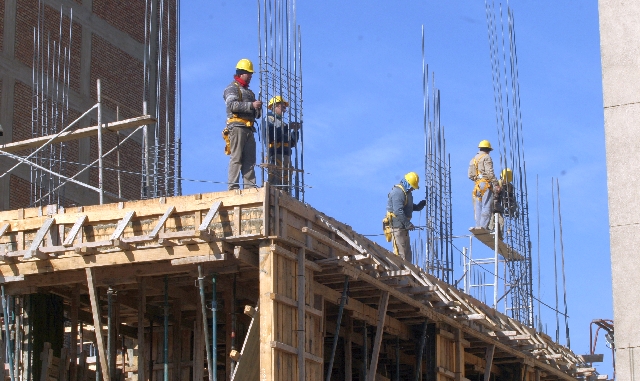News
 Are we in a bad way, but are we doing well?
- 03/01/2025 » 10:26 by cronywell
Are we in a bad way, but are we doing well?
- 03/01/2025 » 10:26 by cronywell
Are we in a bad way, but are we doing well?
The long list of companies that closed, suspended operations or laid off in the last year
Fresenius Medical Care, Xerox, Clorox, Prudential, Procter & Gamble, Nutrien, ENAP and HSBC, Dánica, Chango Más, Diarco, Copetín Gonzalo, Granja Tres Arroyos, AVON, NRG Argentina, Fabrisur, Whirlpool, Textilcom, AlpaCladd, General Motors, Acindar, Bridgestone, among many others.
More than 2,300 companies closed their doors, while others reduced their production or implemented mass layoffs. From multinationals to SMEs, the impact of the recession affects thousands of workers.

The industry suffered a sharp decline this year and that was evidenced in company closures and mass layoffs.
In the last year, Argentina experienced a notable outflow of multinational companies and a series of closures, production suspensions and layoffs in various industries, reflecting the complex economic situation that the country is going through.
The data are conclusive, according to a report by the Confederation of Industrial Unions of the Argentine Republic (Csira), between November 2023 and August 2024, 38,532 jobs were lost in the industry. If the construction and mining sectors are included, the figure rises to 126,050 jobs lost.

In addition, in the same period, 879 companies closed in the manufacturing industry, and 2,333 if mining and construction are also considered. The situation has led 86.6% of the unions surveyed to consider that activity has worsened since Javier Milei came to power, reflecting a climate of growing concern in the workplace.
The labor outlook was also strongly affected, with 60% of industrial unions reporting layoffs in the last quarter and a third of them pointing to difficulties on the part of companies to pay wages. In addition, 82% of the unions surveyed indicated cuts in overtime, and 72% mentioned suspensions, leaves and early vacations for a percentage of workers.
In this context, in the last year, at least eight multinationals stopped operating in Argentina, including HSBC, Xerox, Clorox, Prudential, Nutrien, ENAP, Fresenius Medical Care and Procter & Gamble.
The truth is that the crisis reached all industries equally and many companies chose to stop their production and/or execute layoffs to stay afloat.
An emblematic case was that of Acindar, the steel company, a subsidiary of ArcelorMitta, suspended production at all its plants for a month in March 2024, due to an abrupt drop in demand. Subsequently, in June 2024, it announced a three-week suspension at its plant in Villa Constitución, Santa Fe, and a reduction of its annual production from 1.2 million tons in 2023 to 600,000 tons in 2024.
More recently, the company announced an "untimely" advance of the stops they had scheduled for the end of the year, "due to the sharp drop in sales," according to the union. This stoppage of activities affects more than 700 workers.
In the same vein, Ferrum, the leading company in the manufacture of toilets, paralyzed its plants and carried out layoffs and suspensions of workers in the first half of 2024, in response to the decrease in activity in the construction sector.
Meanwhile, Textilcom and AlpaCladd, textile companies, which produce for brands such as Cheeky, Mimo, Yagmour and Penguin, laid off 300 workers in May in the provinces of Catamarca and La Rioja, due to falling demand and financial difficulties.
The fall in consumption also affects the appliances or white goods sector, which in turn is being unprotected by the reduction of tariffs on the import of refrigerators and washing machines. This led to layoffs at Whirlpool and Briket, among others. In the first, there were 60 layoffs in the company due to production reduction at its plant in the Pilar Industrial Park, in the province of Buenos Aires, in May of this year. In Briket, located in the south of Rosario, the company – which produces refrigerators, displays and freezers – has laid off 300 workers so far this year.

The list goes on and just to mention two cases, General Motors, made 33 layoffs and agreed to 167 voluntary retirements, within the framework of a reduction in production projection. For its part, Bridgestone, the tire company located in Lomas de Zamora, Buenos Aires province, laid off 35 workers in February 2024, citing a drop in demand.
In the retail segment, the ChangoMás supermarket chain laid off around 200 employees in the province of Buenos Aires in May of this year, as part of an operational restructuring.
Later in time, the firm Dánica announced the closure of its plant located in the town of Lavallol, province of Buenos Aires. The decision, taken by the Beltrán Group, owner of the company since 2018, is part of the company's decrease in demand and economic problems. The measure would leave 150 workers unemployed.
Another historic company that this year declared bankruptcy and fired all its workers is the Mendoza-based Copetín Gonzalo, the firm with 30 years of experience closed its doors definitively in the Milei era.
Also in the food sector, companies such as Granja Tres Arroyos, Bimbo and Pepsico, among many others, this year advanced with dozens of layoffs in their different production plants. In all cases, the fall in demand and the high costs of production and labor were the main causes of the decision.
The reality is that job losses and business closures not only affect the workers directly involved, but also local economies and the value chains of various industries. In this context, for the time being, the projections of job creation for 2025 do not seem to be very encouraging.
